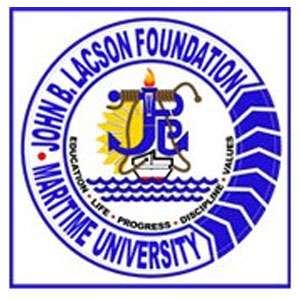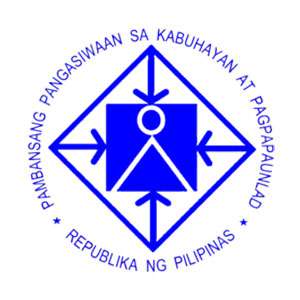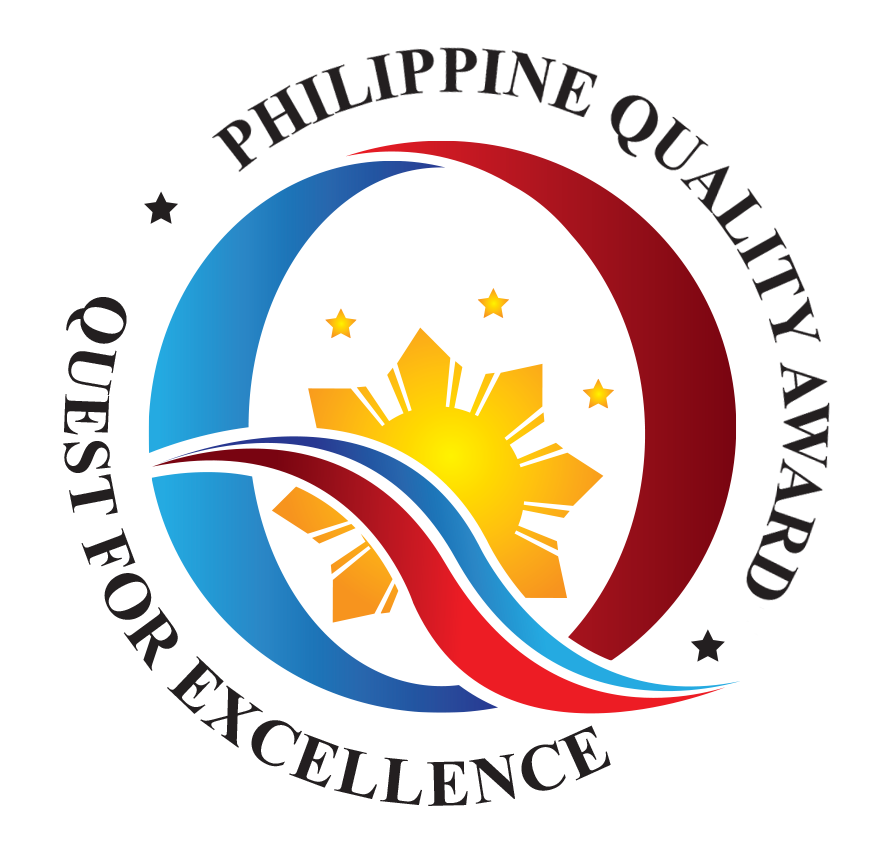DTI PQA Secretariat, DTI Region 1 Representatives, and DMMMSU Officials and Participants DTI-BCD and DTI-Region 1 kick off Region 1’s journey to excellence! 5... (Read More)
Awardees & Recipients
Recognition for Commitment to Quality Management

J.B. Lacson Colleges Foundation-Arevalo, Inc.
John B. Lacson Foundation Maritime University is a pioneer institution in maritime education and training in the Visayas and Mindanao. Since its establishment in 1948, the institution has gone a long way and has made a list of FIRSTS:
- The first maritime educational institution accredited by the Philippine Association of Colleges and Universities Commission on Accreditation (PACUCOA). (March 1986)
- The first and the only maritime educational institution in the Philippines that has a Maritime High School. (1990)
- The first maritime school in the Philippines that have formulated and adopted the Enriched CHED Curriculum incorporating the IMO Model Courses. (June 1995)
- The first maritime educational institution granted Level III accredited and re-accredited status, the distinction which it holds up to this day. (October 1995)
- It is the first maritime educational institution in the Philippines to attain an international accreditation, the DNV Certification for its Quality Assurance System- the first in the Philippines, second in Asia and third in the world to have such a distinction. (November 1997)
- It belongs to the first cluster of 11 maritime educational institutions that have complied with the International Maritime Organization (IMO) requirements, for the inclusion of the Philippines in the “White List”. Of the 11 schools, JBLCF was counted 3 times for its 3 campuses. (1998)
- The first maritime educational institution granted an Autonomous Status. (October 2001)
- The first maritime institution whose graduate program was subjected to the PACUCOA preliminary visit for Level 1 accreditation. (2004)
- The first maritime institution to be a recipient of the Philippine Quality Award (PQA). (2006)
- The first maritime university in the Philippines. (2007)
- The first maritime school with a second re-accredited status for level III by Philippine Association of Colleges and Universities Commission on Accreditation (PACUCOA). (2007)
- The first maritime school granted level IV accreditation by PACUCOA. (November 2008)

National Economic Development Authority Region I (NEDA-I)
The National Economic and Development Authority is the country’s premier socioeconomic planning body, highly regarded as the authority in macroeconomic forecasting and policy analysis and research. It provides high-level advice to policymakers in Congress and the Executive Branch. Its key responsibilities include:
- Coordination of such activities as the formulation of policies, plans and programs to efficiently set the broad parameters for national and sub-national (area-wide, regional and local development);
- Review, evaluation, and monitoring of infrastructure projects identified under the Comprehensive and Integrated Infrastructure Program (CIIP) consistent with the government’s thrust of increasing investment spending for the growing demand on quality infrastructure facilities; and
- Undertaking of short-term policy reviews to provide critical analyses of development issues and policy alternatives to decision-makers.

Philippine Council for Agriculture, Forestry and Natural Resources Research and Development
The Philippine Council for Agriculture, Forestry and Natural Resources Research and Development (PCARRD) was created in November 1972 to consolidate research and impel the country’s development. Starting as the Philippine Council for Agriculture Research (PCAR),its mandates gradually broadened to cover natural resources (PCARR) and eventually the development function (PCARRD).
AS one of the five sectoral councils of the Department of Science and Technology (DOST), PCARRD is the apex organization for planning, evaluating, monitoring, and coordinating the national S &T programs in the agriculture, forestry and natural resources (AFNR) sectors. By virtue of Executive Order No. 128, dated December 30, 1987, it is mandated to:
- Formulate strategies, policies, plans, programs and projects for the development of science and technology (S&T) in the agriculture, forestry and natural resources (AFNR)sectors;
- Program and allocate government and external funds for R&D;
- Monitor and evaluate R&D programs and projects in the AFNR sectors; and
- Generate external funds for R&D in the AFNR sectors.
Relative to the mandates, PCARRD crafted its Corporate Plan or CorPlan (2005-2010) and the Integrated Science and Technology Agenda (STA) 2006-2010. The CorPlan translates the Medium Term Philippine Development Plan (MTPDP) into the Council’s corporate agenda areas, embodied in four banner programs: 1) Knowledge and Technology Generation; 2) R&D Results Utilization 3) Capability Building and Governance; and 4) Policy Research and Advocacy. Anchored on these areas is the STA, which provides the unifying agenda for cooperation and partnership stakeholders. Further, it guides the provision of Grants-in-Aid (GIA) to the National Agriculture and Resources Research and Development Network (NARRDN) and the Regional R&D Consortia.
As organized, the NARRDN facilities programming of activities and allocation of funds. The Network is composed of state universities and colleges (SUCs), research stations of the Department of Agriculture (DA), the Department of Environment and Natural Resources (DENR), and selected private companies that implement R&D projects in their respective areas. NARRDN proposals go through review, approval, monitoring, and evaluation.
The R&D consortia are mechanisms to decentralize, plan, monitor, and evaluate R&D projects and activities at the regional level. Counterpart funds from the Council’s Grant-in-Aid (GIA) support consortia are R&D institutions and support agencies located in the region.


